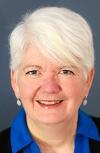For more information, contact us at nrsadvise@umaryland.edu.
AdvISE: Advancing Implementation Science Education

AdvISE Vision Statement
DNP graduates from the University of Maryland School of Nursing will be skilled implementers and implementation scholars. They will graduate with the knowledge, skills, and confidence to develop and lead quality improvement initiatives that transform population health and health care.
Funding
The Advancing Implementation Science Education (AdvISE) Project grant was funded by the Maryland Health Services Cost Commission and the Maryland Higher Education Commission for the Nurse Support Program II (NSP II 19-125), University of Maryland School of Nursing, Baltimore, Maryland. It is a 3-year grant proposal with annual review and contingency funding. Grant Started 7/1/18 and projected end date is 6/30/21.
Racial Equity and Justice Implementation Science Panel
This panel is focused on creating tools to help implementation and improvement scientists, specifically Doctor of Nursing Practice students, better understand the role racial justice and health equity play in the strategies and tactics they employ for quality improvement.
Panel Objectives:
- Review the Expert Recommendations for Implementing Change strategies through a racial justice and health equity lens.
- Explain how implementation and improvement strategies and tactics can be better utilized to combat racial injustice and healthy inequity.
- Write a manuscript examining the panel’s findings and recommendations.
| Panel Members | |
|---|---|
 |
Ana Baumann, PhD abaumannwalker@wustl.edu Research Assistant Professor, Brown School at Washington University in St. Louis Co-Director, Dissemination and Implementation Research Core, Institute of Clinical and Translational Sciences, Washington University in St. Louis |
 |
Debra Bingham, DrPH, RN, FAAN dbingham@umaryland.edu Associate Professor and Principal Investigator, Advancing Implementation Science Education grant, University of Maryland School of Nursing Founder and Executive Director, Institute for Perinatal Quality Improvement |
 |
Laura Damschroder, MPH, MS damschroder@va.gov Lead Author, Consolidated Framework for Implementation Research Research Investigator, Ann Arbor VA Center for Clinical Management Research Project Principal Investigator, PrOVE (PeRsonalizing Options through Veteran Engagement) Quality Enhancement Research Initiative |
 |
Vijaya Hogan, DrPH vkhconsulting08@gmail.com Perinatal Epidemiologist Adjunct Professor, Gillings School of Global Public Health, University of North Carolina at Chapel Hill Principal Consultant, VKH Consulting |
 |
Yolanda Ogbolu, PhD, CRNP-Neonatal, FNAP, FAAN ogbolu@umaryland.edu Associate Professor and Chair, Department of Partnerships, Professional Education, and Practice, University of Maryland School of Nursing Chair, Social Determinants of Health Taskforce for Baltimore City |
 |
Byron Powell, PhD, LCSW bjpowell@wustl.edu Assistant Professor, Brown School at Washington University in St. Louis President, Society for Implementation Research Collaboration Co-Chair, Implementation Special Interest Group, Society for Social Work and Research |
 |
Shoba Ramanadhan, ScD, MPH sramanadhan@hsph.harvard.edu Assistant Professor of Social and Behavioral Sciences, T.H. Chan School of Public Health, Harvard University Senior Scientist, Center for Community-Based Research, Dana-Farber Cancer Institute |
Quality Improvement (QI) Briefs Videos
Quality Improvement (QI) Briefs are short educational videos on QI concepts, process models, tips, and tools. The QI Briefs series was specifically designed to support Doctor of Nursing Practice students, faculty, and advanced practice nurses.
Click the title to watch the QI Brief on YouTube.
In this video, Lucy Ruccio, DNP, program management specialist, addresses the topic of how to construct a manuscript of a Quality Improvement Project and addresses the following objectives:
- Explain the basic components of quality improvement manuscript writing
- Demonstrate how to construct the components of a quality improvement paper
In this video, Renee Franquiz, DNP, RN, CNE, assistant professor, addresses the topic of measurement during a quality improvement project and addresses the following objectives:
- State the purpose of measurement as it relates to quality improvement
- Identify appropriate measures for quality improvement initiatives
- Explore measurement methods using a case study scenario
- Track measurement data for decision making
In this video, Kathleen Buckley, PhD, RN, IBCLC, associate professor, addresses setting goals during a quality improvement project and addresses the following objectives:
- Compose SMART goals
- Compose short-, mid-, and long-term SMART goals
- Develop structure, process, outcome goals
- Distinguish between goals and benchmarks
2020 - 21 AdvISE Webinar Series
The AdvISE Webinar series was produced by the Advancing Implementation Science Education (AdvISE) team at the University of Maryland School of Nursing focus on integrating quality improvement methods and strategies in Doctor of Nursing Practice (DNP) project courses.
- Racial Equity and Justice Implementation Strategies and Tactics for DNP Projects
May 5, 2021 - The Changing Face of Practice Leadership in DNP Education
March 4, 2021 - Doctor of Nursing Practice Projects in Student/Faculty Groups to Facilitate Learning with Large Cohorts
Thursday, Nov. 12, 2020 - Development of Measurement Criteria to Increase Rigor of Doctor of Nursing Practice Projects
Wednesday, Aug. 26, 2020 - Structuring Doctor of Nursing Practice Project Courses to Facilitate Success and Ensure Rigor in Quality Improvement Projects
Tuesday, May 19, 2020 - Integration of Evidence-Based Practice, Implementation Science, and Quality Improvement
Tuesday, Feb. 18, 2020
AdvISE Webinar No. 6: Racial Equity and Justice Implementation Strategies and Tactics for DNP Projects
This webinar took place on Wednesday, May 5, 2021.
This sixth webinar produced by the Advancing Implementation Science Education (AdvISE) team at the University of Maryland School of Nursing (UMSON) focuses on the work of the Racial Equity and Justice in Implementation Science (REJIS) Panel that was formed to address the current scarcity of strategies and tools available to support Doctor of Nursing Practice (DNP) students to implement their projects through a racial justice and health equity lens.
Presenters:
 Debra Bingham, DrPH, RN, FAAN
Debra Bingham, DrPH, RN, FAAN
Associate Professor and Principal Investigator, AdvISE Grant, UMSON
Bingham has developed and led several state and national quality improvement initiatives that have reduced maternal mortality and morbidity. She is an associate professor at UMSON, where she is expanding the utilization of implementation science and improvement science theories, frameworks, models, and quality improvement methods and tools within the DNP curriculum. She is the principal investigator for the Advancing Implementation Science Education (AdvISE) Nurse Support II grant. She is also a perinatal consultant and the founder and executive director of the Institute for Perinatal Quality Improvement.
 Yolanda Ogbolu, PhD, CRNP-Neonatal, FNAP, FAAN
Yolanda Ogbolu, PhD, CRNP-Neonatal, FNAP, FAAN
Associate Professor and Chair, Department of Partnerships, Professional Education, and Practice, UMSON
As department chair, Ogbolu is responsible for overseeing UMSON’s Office of Global Health, Clinical Simulation Labs, Standardized Patient Program, Institute for Educators, the Governor’s Wellmobile program, and the Office of Professional Education. Ogbolu’s research seeks global and local solutions for advancing health equity. In addition, she has funded projects that address social determinants of health, community social isolation, cultural competency, and health disparities in neonatal outcomes. Trained by the National Institutes of Health (NIH) in Dissemination and Implementation Science (TIDRH alum), she served as an expert consultant for the World Health Organization (WHO) on the development of an implementation science curriculum for health professionals in developing countries in 2013 and as a reviewer on WHO impact and NIH dissemination and implementation training. Ogbolu has implemented multiple health equity research studies, including a Dissemination & Implementation Science Research grant that focuses on improving health equity via adoption of cultural competency standards and policies in local hospitals; a study focusing on a community-based approach to addressing social determinants of health using information technology across multisectoral organizations; and current research examining community social isolation in West Baltimore using a global learning model. Ogbolu brings to academia 25 years of clinical practice experience in maternal child health as a neonatal nurse practitioner. In 2009, she served as a legislative intern in the Maryland General Assembly with the chair of the Subcommittee on Minority Health Disparities. She has since served on two governor’s task forces: the Maryland Infant Mortality Task Force Epidemiology Group (2011) and as co-lead on Maryland’s Task Force on Cultural Competency (2012 - 13) under the direction of the Maryland Office of Minority Health. She currently chairs the Social Determinants of Health Taskforce for Baltimore City, the first of its kind in the nation.
Objectives:
- Describe why the REJIS Panel was formed.
- Discuss the REJIS Panel’s health equity and racial justice principles to guide how DNP students develop and implement their DNP project strategies and tactics.
- Outline examples of how DNP students can apply the health equity and racial justice implementation strategy and tactics principles.
Intended audience:
Faculty, students, and clinicians interested in integrating quality improvement methods and the fight for racial justice and against health inequities into DNP education.
Why attend this webinar:
This webinar will describe and discuss the work of the REJIS Panel, which was formed to address the current scarcity of strategies and tools available to support DNP students in implementing their projects through a racial justice and health equity lens. The webinar will address the steps and processes of the REJIS Panel as well as the development of initial tools and strategies.
AdvISE Webinar No. 5: The Changing Face of Practice Leadership in DNP Education
This webinar took place on Thursday, March 4, 2021.
This fifth in a series of six webinars produced by the Advancing Implementation Science Education (AdvISE) team at the University of Maryland School of Nursing (UMSON) focuses on how one school modified didactic and practice leadership education based on the American Association of Colleges of Nursing Essentials, curricular review, feedback from academic practice partners, and changes in characteristics of Doctor of Nursing Practice (DNP) students.
Presenters:
 Debra Bingham, DrPH, RN, FAAN
Debra Bingham, DrPH, RN, FAAN
Associate Professor and Principal Investigator, AdvISE Grant, UMSON
Bingham has developed and led several state and national quality improvement initiatives that have reduced maternal mortality and morbidity. She is an associate professor at UMSON, where she is expanding the utilization of implementation science and improvement science theories, frameworks, models, and quality improvement methods and tools within the DNP curriculum. She is the principal investigator for the Advancing Implementation Science Education (AdvISE) Nurse Support II grant. She is also a perinatal consultant and the founder and executive director of the Institute for Perinatal Quality Improvement.
 Carol A. O'Neil, PhD, RN, CNE
Carol A. O'Neil, PhD, RN, CNE
Associate Professor, UMSON
O'Neil's areas of expertise include teaching online and curriculum development and evaluation. She has authored books, journal articles and book chapters, and has many national and international presentations related to teaching in online environments. She is the principal investigator for a grant to prepare advanced degree nurses to be nurse educators.
 Veronica "Ronnie" Quattrini, DNP, FNP-BC
Veronica "Ronnie" Quattrini, DNP, FNP-BC
Senior Director, Doctor of Nursing Practice Program; and Assistant Professor, UMSON
Quattrini's areas of expertise include simulation-based education, leadership, interprofessional practice, and health care policy. She has a passion for emergency health care and has sat on several professional committees, including the Robert Wood Johnson Foundation’s Urgent Matters. She was recently invited to the White House to represent frontline workers and has written on the impact of COVID-19 in emergency health care.
Objectives:
- Describe why the AdvISE Leadership Workgroup was formed.
- Present the history and changing role of leadership education in the DNP degree.
- Discuss the curricular changes and the current state of leadership education in the DNP degree at UMSON.
Intended audience:
Faculty, students, and clinicians interested in integrating quality improvement methods and practice leadership into DNP education.
Why attend this webinar:
This webinar will describe a new educational model with successes and challenges and will look at the future role of leadership theories, strategies, and tactics in DNP education.
AdvISE Webinar No. 4:
Doctor of Nursing Practice Projects in Student/Faculty Groups to Facilitate Learning with Large Cohorts
This webinar took place on Thursday, Nov. 12, 2020.
This fourth in a series of six webinars produced by the Advancing Implementation Science Education (AdvISE) team at the University of Maryland School of Nursing (UMSON) focuses on how one school modified the Doctor of Nursing Practice (DNP) Project courses from a traditional chair and committee format to a class-driven format with multiple smaller sections to successfully manage large numbers of DNP students across nine specialties.
Presenter:
Shannon K. Idzik, DNP, CRNP, FAANP, FAAN
Associate Professor and Associate Dean for the DNP Program, UMSON
Dr. Idzik has been on the UMSON faculty since 2005 has served as the program director for the Adult-Gerontology Nurse Practitioner specialty and then the director of the DNP program. She maintains a practice at the University of Maryland Upper Chesapeake Medical Center in the Comprehensive CARE Center. She also serves as the treasurer of the National Organization of Nurse Practitioner Faculties (NONPF) and is a past president of the Nurse Practitioner Association of Maryland. She was awarded the American Association of Nurse Practitioners (AANP) State Award for Excellence in 2012, was selected as a Fellow of the AANP in 2014, received the NONPF Outstanding Policy Award in 2015, and became a Fellow of the American Academy of Nursing in 2017. Dr. Idzik directed the DNP program during UMSON’s BSN-to-DNP transition. She was a member of the American Association of Colleges of Nursing Task Force on Implementation of the DNP and consults nationally with schools implementing DNP programs.
Objectives:
- Describe the process UMSON used to change the format of DNP Project development and oversight.
- Discuss the successes and challenges of implementing this new model.
- Present details regarding finances, course coordination, project advisors, project team, annual offerings, and grouping of students within the new DNP Project model.
Intended audience:
Faculty, students, and clinicians interested in integrating quality improvement methods and strategies into DNP project courses.
Why attend this webinar:
Despite the initial intent of the 2004 American Association of Colleges of Nursing (AACN) position statement to move all advanced nursing practice education to the doctoral level, many schools continue to offer it at the master’s degree level. Many schools successfully transitioned their programs but struggled with adequate resources for the growing number of students and the faculty, staff, and preceptor workload associated with the DNP Project courses. The AACN 2015 taskforce made many recommendations related to quality of DNP projects, but there is little in the literature on best operational practices. The goal of this webinar is to describe how one school modified the DNP Project courses from a traditional chair and committee format to a class-driven format with multiple smaller sections to manage successfully large numbers of DNP students across nine specialties. Specifically, the lecture will describe a new model with successes and challenges as well as details regarding finances, course coordination, project advisors, project team, annual offerings, and grouping of students
AdvISE Webinar No. 3:
Development of Measurement Criteria to Increase Rigor of Doctor of Nursing Practice Projects
This webinar took place on Wednesday, Aug. 26, 2020.
This third in a series of six webinars produced by the Advancing Implementation Science Education (AdvISE) team at the University of Maryland School of Nursing (UMSON) focuses on identification of quality improvement (QI) measurement content priorities in Doctor of Nursing Practice (DNP) courses.
Presenters:
Linda L. Costa, PhD, RN, NEA-BC
Associate Professor, University of Maryland School of Nursing
Carla Storr, ScD, MPH
Professor and Director, Center for Health Outcomes Research, University of Maryland School of Nursing
Objectives:
- Describe the process UMSON uses to evaluate QI measurement content in its DNP courses.
- Discuss how the level of instruction is tracked across courses.
- Identify the strategies used to identify and fill gaps in the curricula.
Intended audience:
Faculty, students, and clinicians interested in integrating quality improvement methods and strategies into DNP project courses for large cohorts of students.
Why attend this webinar:
There is limited consensus on the specific data and measurement knowledge and skills that DNP graduates should acquire during their DNP coursework and demonstrate in their final projects. Quality improvement (QI) measurement methods and tools have been proposed as a way to help increase DNP scholarship and rigor. In this presentation, the process UMSON uses to evaluate QI measurement content in their DNP courses will be described. This process was implemented as the program transitioned from one where students independently implemented multiple types of projects under the direction of a chair and committee to one in which students use QI methods and tools under the mentorship of a project faculty advisor and clinical site representative. There will be a description of a grid that was initially created to identify and rank key QI components. The grid was then expanded upon to track the level of instruction across courses and to identify curriculum gaps. We will share the measurement grid developed by the workgroup and the recommendations for its use.
AdvISE Webinar No. 2:
Structuring Doctor of Nursing Practice Project Courses to Facilitate Success and Ensure Rigor in Quality Improvement Projects
This webinar took place on Tuesday, May 19, 2020.
This second in a series of six webinars produced by the Advancing Implementation Science Education (AdvISE) team at the University of Maryland School of Nursing focuses on integrating quality improvement methods and strategies in Doctor of Nursing Practice (DNP) project courses.
Presenter:
Kathleen M. Buckley, PhD, RN, IBCLC
Associate Professor, University of Maryland School of Nursing
Objectives:
- Describe DNP project course structure and content at the University of Maryland School of Nursing.
- Discuss how quality improvement is integrated into the project courses.
- Identify strategies used and lessons learned in transitioning DNP project courses from smaller to larger cohorts.
Intended audience:
Faculty, students, and clinicians interested in integrating quality improvement methods and strategies into DNP project courses for large cohorts of students.
Why attend this webinar:
Extensive evidence indicates the need to improve health care structures, processes, and outcomes. Simply A lack of consensus exists regarding the best format or deliverables for DNP project courses. This presentation will explore the project course history at the University of Maryland School of Nursing as the program transitioned from a smaller post-master's option to one that also admits larger cohorts of post-baccalaureate students.
The project course format shifted from one in which students independently implemented multiple types of projects under the direction of a chair and committee to one in which students carried out projects utilizing quality improvement methods and tools under the mentorship of a project faculty advisor and clinical site representative.
The webinar will describe how quality improvement models were integrated and exemplified through course objectives, assignments, and evaluation methods and will provide lessons learned through this transition in the hope that the work may benefit other nursing schools with similar programs, format, and evaluation methods.
AdvISE Webinar No. 1:
Integration of Evidence-Based Practice, Implementation Science, and Quality Improvement
This webinar took place on Tuesday, Feb. 18, 2020.
This first in a series of six webinars produced by the Advancing Implementation Science Education (AdvISE) team at the University of Maryland School of Nursing focuses on the importance of implementation science and quality improvement in doctoral education.
Presenter:
Debra Bingham, DrPH, RN, FAAN
Associate Professor, University of Maryland School of Nursing
Objectives:
- Describe why the University of Maryland School of Nursing’s faculty are working to advance implementation science education.
- Discuss the definitions and relationships among evidence-based practice, implementation science, improvement science, and quality improvement (QI).
- Outline Bingham’s Evidence-Based Practice Quality Improvement Flow Chart.
Intended audience:
Faculty, students, and clinicians interested in expanding evidence-based practice by improving the utilization of implementation and improvement science methods and tools
Why attend this webinar:
Extensive evidence indicates the need to improve health care structures, processes, and outcomes. Simply acknowledging that making such improvements is a complex and dynamic process is not enough. Faculty, students, and practitioners need knowledge about implementation science (IS) theories, frameworks, and models so they are better prepared to design and implement more effective quality improvement (QI) projects.
According to the Hastings Center, a prestigious health care ethics think tank, QI is not a discretionary activity within health care; instead, QI is the responsibility of everyone. However, building IS and QI capacity among registered nurses is a major challenge. Nursing faculty, students, and graduates have a critical and urgent need to build additional IS and QI expertise and skills that incorporate the latest findings from IS research.
National education standards state that Doctor of Nursing Practice students must demonstrate expertise in dissemination and implementation of a QI project prior to graduation, but only one-third of faculty who responded to a national survey indicated that the DNP courses at their schools included QI content that was compatible with the Quality and Safety Education for Nurses (QSEN) guidelines. These findings indicate that many schools of nursing need to determine the most effective way to expand IS and QI knowledge and expertise among faculty and clinicians.
2019 AdvISE Summit
The AdvISE Summit took place on Tuesday, Sept. 24, 2019.
This one-day summit brought together national experts to discuss how to expand implementation science and quality improvement capacity among doctoral faculty and students.
This event has concluded. Registration was offered at no cost thanks to funding from the Nurse Support Program II, which in turn is funded by the Maryland Health Services Cost Review Commission and administered by the Maryland Higher Education Commission.
Objectives
Objective 1: Describe the need to advance utilization of implementation science findings and quality improvement approaches and tools among Doctor of Nursing Practice (DNP) students and faculty and other health care professionals.
Objective 2: Compare the varying definitions and practical attributes of implementation science, improvement science, and quality improvement (QI).
Objective 3: Explain how implementation science findings can be better utilized by DNP faculty and students and others to improve QI initiatives and patient outcomes.
Objective 4: Identify key implementation science and QI skills and competencies graduate students getting a practice doctorate (e.g., DNP) should achieve prior to graduation.
Panelists
 |
Laura Damschroder, MS, MPH Lead Author, Consolidated Framework for Implementation Research Research Investigator, VA Ann Arbor Center for Clinical Management Research Project Principle Investigator, PrOVE (PeRsonalizing Options through Veteran Engagement) Quality Enhancement Research Initiative |
 |
Mary Dolansky, PhD, RN, FAAN Director, QSEN Institute Assistant Professor, Case Western Reserve Frances Payne Bolton School of Nursing and Case Western Reserve School of Medicine Senior Faculty Scholar, VA Quality Scholars Fellowship Program |
 |
Jeannie S. Garber, DNP, RN, NEA-BC Professor and Coordinator of the Doctor of Nursing Practice (DNP) Program, James Madison University |
 |
Donald Goldmann, MD Chief Medical and Scientific Officer, Institute for Healthcare Improvement Professor, Department of Immunology and Infectious Diseases Professor of Epidemiology, Harvard T.H. Chan School of Public Health Clinical Professor of Pediatrics, Harvard Medical School |
 |
Anne Sales, PhD, RN Associate Chair for Health System Innovation PhD; Professor, Division of Learning and Knowledge Systems; and Director, Health Infrastructures and Learning Systems program, University of Michigan Research Scientist, VA Ann Arbor Center for Clinical Management Research Co-Editor-in-Chief, Implementation Science journal |
 |
Bryan Weiner, PhD Professor, Department of Global Health and Department of Health Services, University of Washington |
Agenda
| Time | Topic and Objectives |
|---|---|
| 8 a.m. | Registration and Breakfast |
| 8:30 | Welcome and Introduction |
| 8:40 |
Why UMSON is Working to Advance Implementation and Improvement Science Education |
| 9 |
Insights from the Needs Assessments |
| 9:45 |
Do Definitions Matter? |
| 10:15 | Break |
| 10:30 |
The Relevance of Implementation Theories and Frameworks to Students Obtaining a Practice Doctorate |
| 11:30 |
Summary and Discussion of UMSON’s Measurement Workgroup’s Recommendations |
| 12:15 p.m. | Lunch Break |
| 1 |
Summary and Discussion of UMSON’s Leadership Workgroup’s Recommendations |
| 1:45 | Break |
| 2 |
Summary and Discussion of UMSON’s Project Course Workgroup’s Recommendations |
| 2:45 |
Summation – Final Statements from Panelists |
| 3:15 | Next Steps |
Assumptions
- People attending the summit are familiar with the DNP degree.
- The primary focus of the discussion is related to DNPs. The discussions are also relevant to other clinicians earning a practice doctorate.